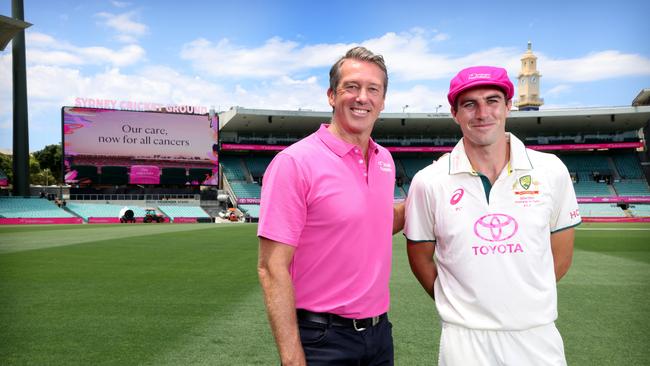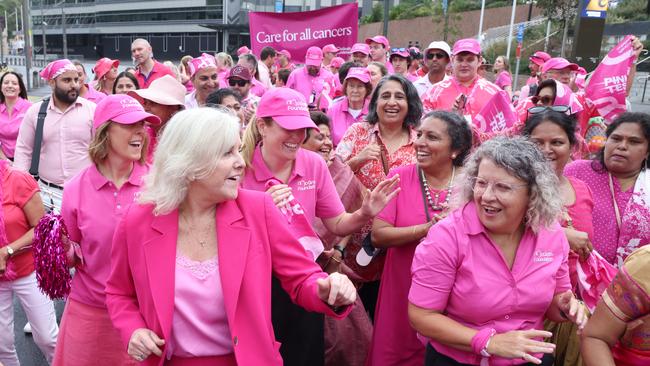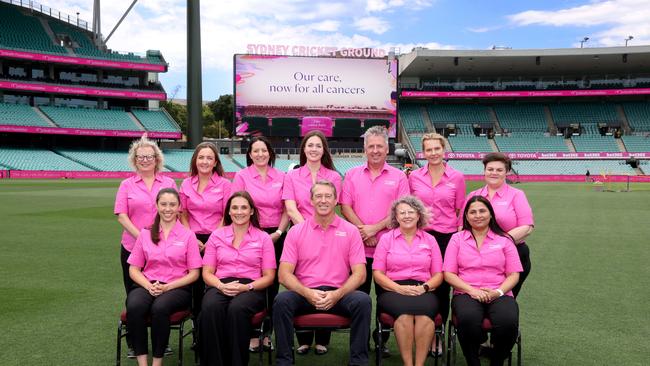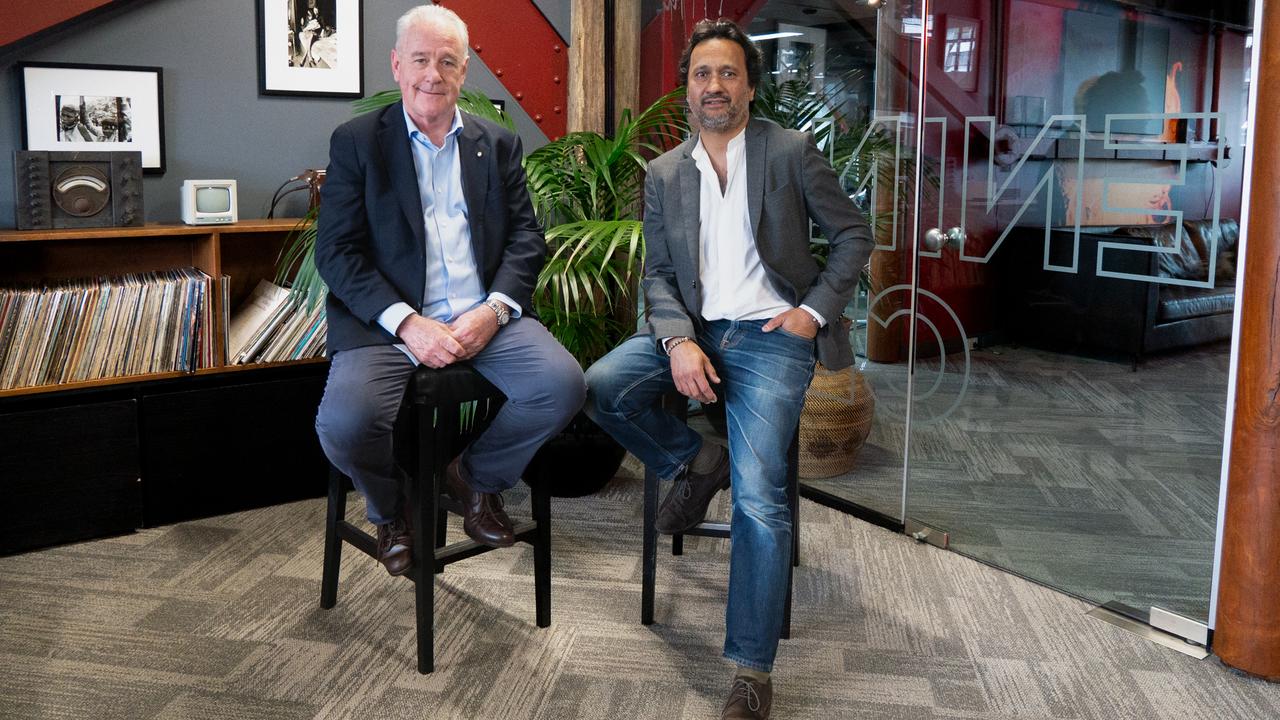The McGrath Foundation’s Pink Test faces a new innings
The McGrath Foundation’s Pink Test is one of the largest charitable sporting events in the world. Now tasked with a greater remit to provide care for all cancer patients, can it continue to grow?

The McGrath Foundation’s decision to expand its focus beyond breast cancer to all cancer care helped the charity reach a record breaking $9.25m in fundraising at this year’s Pink cricket Test.
The annual fundraising event, which is one of the biggest charitable sporting events in the world, reported a 39 per cent increase on the previous year, as a result of its new mission to support people experiencing any type of cancer.
The charity, named for its founder Jane McGrath, the wife of Test cricketer Glenn McGrath, traditionally raised money to fund breast cancer nurses which cost $150,000 per nurse per year.
The change means the foundation will now focus on raising money so those going through cancer treatment of any kind will have access to a McGrath Cancer Care Nurse.
The decision to expand its focus is the result of the organisation’s growth in its 20-year life which culminated in reaching the goal of funding 250 dedicated breast cancer nurses last year.

“When we set the goal it seemed like a hell of a mountain to climb,” said McGrath Foundation chief marketing and revenue officer Ryan Barlow. “And in the end we beat the date by 12 months. That was down to The Pink Test last year, which exceeded all expectations.
“Over the corresponding 12 months, we put on all the remaining nurses we needed and got ourselves to that goal of 250 and then we were coming to terms with the fact that our first mission was going to be achieved. That’s a goal that very few charities globally ever meet.”
Mr Barlow said it was a “brave request” from the government that drove the expansion to expand to all cancers. The McGrath Foundation’s response was “How can we not?”
“The real driver behind our thinking and discussions was the idea of equity and recognition: that we can play a role at creating more equity in the cancer system, in ensuring the care that we deliver, and the impacts that patients and families see from our care can and should be experienced by everyone. At the moment, that is not the case,” he said.
“That’s what was driving the government, this idea that we’ve definitely got some things right with the McGrath Foundation model. So can we deliver that in an equitable fashion across all cancers?”
Mr Barlow said the decision was not a response to suggestions that breast cancer received more attention than other cancers.
“Breast cancer does get a lot of coverage and it has done for a while. But it’s the second most prevalent cancer, so there’s an argument that suggests it’s weighted appropriately. But equity was the real driver behind our thinking.”

The McGrath Foundation model, particularly the Pink Test, has been a significant player within the charity sector since its launch in 2005 and the first Pink Test in 2007. The high profiles of Jane and Glenn McGrath and the affiliation with cricket has helped ensure the organisation and its cause maintained strong awareness nationally.
“From the start, the Sydney Pink Test moment, it had momentum from the way Australians really got behind it,” said Mr Barlow.
“There are certainly (other) large fundraising moments, but in terms of the visibility, the scale of participation, the longevity and the consistency, there aren’t many (like The Pink Test). The Ice Bucket Challenge was amazing, and I love the way that changed the game during Covid, but it happened and it didn’t have a place to keep going each year.
“The fact that (The Pink Test) has given us a consistent place that people keep coming back to reconnect with, and that it’s still growing, is very special.”
A significant growth accelerator came in 2021 during Covid when The McGrath Foundation introduced the Virtual Pink Seats, enabling people to buy seats within a virtual stadium to serve as a symbol of their donation, which they could share through social channels.
The virtual seats were immensely popular addition to the fundraising efforts. In the first year of the innovation, the McGrath Foundation sold 153,600 seats and raised more than $3m, which was a 201 per cent increase in fundraising on the previous year.
The Virtual Pink Seats have become a highly anticipated element of the annual fundraising efforts each year. This year the charity’s target was to sell 350,000 Virtual Pink Seats. It sold 462,400 seats, which Mr Barlow said was recognition of support for the new all-cancer focus.
“The overwhelming response from all of Australia is ‘thank you’. The feedback is coming through and people are grateful that this service is being expanded. It’s ‘Thank you for what you have done and what you are now doing,’ that has been the sentiment of the feedback.”
Mr Barlow said the brand’s credibility was a crucial element to its ability to grow and evolve.
“That first chapter will always be really important because it is the foundation of our credibility,” he said.
“That’s why we were asked by the government, but it’s also why Australia might trust us to do it.
“One of the big questions we had coming into this announcement and the Pink Test was to what extent is Australia going to trust us to take this on? And yes, there’s a storyline that says we’ve achieved our mission. You helped us get there.
“This is a natural progression for us, but at the end of the day, it boils down to, do you trust us? Do you believe we can do this? And for us, the Pink Test this year was the litmus test, and we got a resounding yes.
“We far exceeded all our goals and even our wildest dreams, if I’m honest, especially as the Australian cricket team only gave us three days of cricket to do it in.
“When you weigh it all up, the fundraising is important. It is absolutely critical to what we do, of course. But what was probably more important this year was that vote of confidence that sign from Australia, that we trust you, we’re with you, let’s keep going.”
The challenge for the charity is to evolve the brand and the organisation around its new all-cancer focus and continue to drive growth for its significantly larger mission, Mr Barlow said.

“We had the gift of a Pink Test moment during which to launch the brand evolution, which has a new personality, language and look and feel. It’s also a step change for us, we’ve been a really fun brand for a long time. There’s been an energy and a spirit which was required, but we are also becoming a really critical service. And with that is a trust and respect that needed another side to our brand. We are still fun, we’re still full of hope but we also needed to build in a side to us that was full of respect, that was experts in healthcare, experts in delivering cancer care and nursing care. And so we have refined the brand.”
The brand evolution, which includes a darker pink colour and changes in tone and language, was intentionally quiet to ensure the focus was on the charity’s mission.
“We didn’t want it to be about the brand and a superficial brand relaunch, but we needed to evolve the brand to follow where the organisation is going,” Mr Barlow said .
“In a messaging and language sense, it is quite simply, moving from supporting families through breast cancer, to supporting those going through any cancer, and that’s a story that we know is going to take some time to shift.
“There’s lots of people who will still connect us to breast cancer, and that’s okay, because we continue to support breast cancer, and patients going through breast cancer.
“We have a job to do to get the all-cancer message out there. But to have made what feels like a reasonable step change in the messaging so quickly, is tantamount to the scale of that Pink Test moment.”


